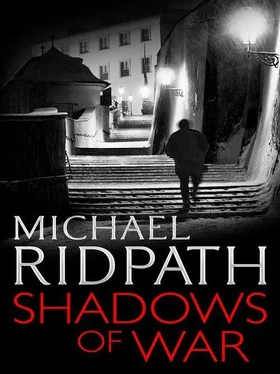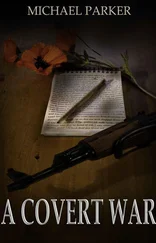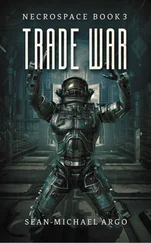‘I read about it,’ said Conrad. ‘It caused quite a stir, didn’t it?’ A few months before the outbreak of war, the duke had used the occasion of a visit to the Verdun battlefield to make an impassioned speech for peace, which was broadcast by an American radio station.
‘It did,’ said Oakford. ‘But it made sense to me.’ He frowned. ‘Why all these questions?’
‘After Holland, I went to Paris,’ Conrad said. ‘And I heard some worrying rumours about the duke.’
‘There are always worrying rumours about the duke,’ said Lord Oakford. ‘People don’t like him after he chucked the throne. But he loves his country, I’m sure of that. And he is still a member of the royal family, a former king. It’s absurd to think that he would do anything to betray England.’
‘Absurd?’
‘Absurd,’ Oakford repeated. His frown deepened. ‘I know what it is! You think because he believes in peace he doesn’t love his country. Why can’t you understand that it’s exactly because we love our country that people like him, and me for that matter, believe that we shouldn’t be fighting? The war will ruin us. Once it gets going, hundreds of thousands of Englishmen will lose their lives. We might even lose the damn thing. Is that good for Britain? Answer me that!’
The voice was rising; the eyes were glinting. Conrad’s father was on the brink of exploding. Conrad wanted to answer, to disagree, to argue, but he knew what that would lead to. For his mother’s sake he had stayed on in Kensington Square; for his mother’s sake he was still speaking to his father after he had sent Millie to her death in a quixotic lunge for peace.
But then his father did something rather odd. He apologized.
‘I’m sorry, Conrad. Millie’s death has… Well, you know. And then I have just received some news that I should really tell you.’
An apology from his father was rare, and Conrad appreciated it. ‘That’s all right, Father. What’s the news?’
‘Are you seeing Theo in Holland?’
‘I’ve contacted him,’ said Conrad. He had sent a telegram to the Copenhagen address suggesting that Theo meet him at the University of Leiden. ‘I haven’t received a reply, and I don’t necessarily expect one, but I hope he shows up. There’s a lot I want to ask him. He may well know the answers.’
‘He may,’ said Oakford. His face, already grave, became even graver. ‘Van telephoned me half an hour ago. They have more evidence about Millie’s death.’
‘What?’ asked Conrad.
‘They have a witness. A walker who saw Theo running out of the dunes with blood on his hands and his shirt. He identified him by the scar on his jaw. I’m sorry, Conrad. There is no doubt now that Theo killed her.’
Conrad refilled his glass from the port decanter and sat in his father’s armchair in front of the embers of the coal fire in the drawing room. It was just past midnight: the others had all gone up to bed.
The decanter was almost down to the dregs; Conrad had already helped himself to quite a few glasses. There was something about drinking port that reminded Conrad of Theo, of those long nocturnal conversations at Oxford.
He fixed his eyes on the fireplace, as if an answer would be revealed somewhere in the dying orange glow of the coals, if only he stared long and hard enough.
How could he do it? How could Theo kill Millie?
Had he really killed Millie?
Ever since he had heard about the new witness in Holland, Conrad had been torn between fury and disbelief. Fury that Theo had killed his sister and disbelief that he actually had done so. He tried to cling to the disbelief, but all the time he was afraid he was just hiding from the truth, denying the evidence.
Conrad had known Theo since the age of eighteen. During that time they had shared much: ideas, drink, friendship and, more recently, a sense that the only way to stop global catastrophe was to stop Hitler. They loved and respected their own countries and each other’s. They had faced danger together; together they had worked to overthrow the German dictator. It was bad enough for Conrad to learn that Theo had been negotiating with his sister and his father behind his back. To be told that Theo of all people had actually killed Millie was unbearable. Unthinkable.
It was unthinkable. Apart from anything else, Theo was not a killer, or not yet. Unlike Conrad, who had killed in Spain and then in Berlin. Chivalry was bred deep into Theo; Conrad could not imagine him stabbing a woman, especially not Conrad’s sister.
But the unthinkable had happened.
Why would Theo do it? Conrad couldn’t think of a reason, but that didn’t mean there wasn’t one. In the world of espionage he was beginning to realize that few people if any ever had the whole picture. And the other trait that was bred deep into his friend was loyalty to his country. For the right reason, if there was no other alternative, and if his country demanded it, perhaps Theo could kill, in much the same way his Prussian ancestors had killed, ever since the Seven Years War two hundred years before.
Conrad hoped he would find out something more in Holland, either from the Dutch authorities, or from Theo himself. But deep down he knew he should stop fooling himself, accept the unacceptable.
His friend had killed his sister.
Gestapo Headquarters, Berlin, 21 November
Schellenberg examined the short memorandum on his desk, and frowned. When you worked for the Gestapo, there were certain moments where taking the wrong decision, following the wrong path, could be career-threatening. Even life-threatening. Survival came from recognizing those moments; they were not always easy to spot.
Schellenberg’s instinct told him this was one of them.
The memorandum came from one of the Gestapo officers detailed to keep an eye on Lieutenant von Hertenberg in Holland. The officer had approached a Dutch professor at the University of Leiden, W. F. Hogendoorn, who was a firm believer in National Socialism and felt that his own country’s future would best be served by friendship with Germany. The professor had occasionally been used in the past by Hertenberg as a means of contacting foreigners in Holland. One of these was an Englishman named Conrad de Lancey. Hogendoorn told the Gestapo officer he had his doubts about Mr de Lancey, and by implication about Hertenberg. He wondered whether what they were doing was above board.
It was a good question and Schellenberg didn’t know the answer.
The choices facing Schellenberg were the same as before: he could keep the information to himself, he could check with Canaris, or he could inform Heydrich. Schellenberg preferred the first option, but he knew that if he chose not to inform Heydrich now and his decision came to the notice of his superior, he would be in trouble. Possibly terminal trouble. And his instinct was that de Lancey and Hertenberg were likely to cause more difficulties, the kind of difficulties that would get them noticed.
He dug out the de Lancey file from his desk drawer, picked up the telephone and called Heydrich’s secretary, telling her he had to see him as soon as possible.
The Gruppenführer was only a few years older than Schellenberg, a tall man with blond thinning hair brushed back over a high forehead. His eyes were small and crafty, and his nose and lips suggested the cruelty of a predator — a hawk perhaps, or even a vulture. Yet there was something feminine about him: his high-pitched voice, his wide hips, his delicate hands. The whole effect was disconcerting, disorienting, a warning. In Schellenberg’s opinion, it was sensible to be disconcerted by Heydrich.
Schellenberg remained standing as he passed his chief the memorandum.
Читать дальше












